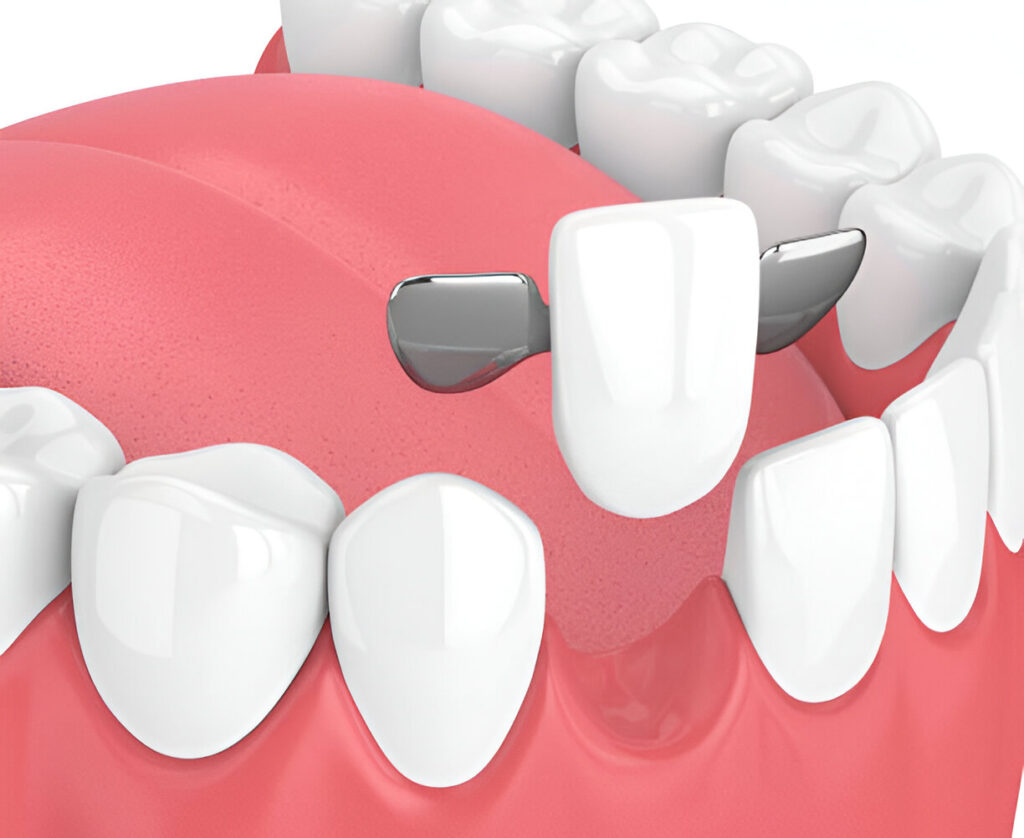Many people wonder whether there is a difference between a dental cap and a dental crown. The short answer is that both terms refer to the same dental restoration. “Cap” is a more informal term, while “crown” is the professional term used by dentists. These restorations help protect and strengthen damaged teeth while improving their appearance.
What is a Dental Crown?
A Dental crown is a custom-made cover that fits over a damaged or weakened tooth. It restores the tooth’s strength, shape, and function, protecting it from further damage.
Common Uses for a Dental Crown:
- Protects a weak or cracked tooth from further damage.
- Restores a broken or severely worn-down tooth.
- Covers and strengthens a tooth with a large filling.
- Holds a dental bridge in place.
- Covers a dental implant.
- Improves the appearance of discoloured or misshapen teeth.
Types of Dental Crowns:
- Porcelain Crowns – Natural-looking and ideal for front teeth.
- Metal Crowns – Extremely durable and commonly used for molars.
- Porcelain-Fused-to-Metal (PFM) Crowns – A blend of durability and aesthetics.
- Resin Crowns – More affordable but less durable than other materials.
- Gold Crowns – Long-lasting and resistant to wear.
Can I Just Walk in to a Polyclinic?
What is a Dental Cap?
A dental cap is simply another name for a crown. Some people use “cap” when referring to a restoration that covers only a portion of the tooth, such as an onlay or inlay. However, in most cases, a cap is a full-coverage crown.
Why People Call It a “Cap” Instead of a “Crown”:
- “Cap” is an informal, patient-friendly term.
- “Crown” is the official dental term used by professionals.
- Both terms refer to the same restoration.
Can a Normal Dentist Do Crowns?
Key Differences Between a Crown and a Cap
| Feature | Dental Crown | Dental Cap |
|---|---|---|
| Terminology | Professional dental term | Informal term used by patients |
| Coverage | Covers entire tooth | Covers entire tooth (sometimes used for partial covers) |
| Materials Used | Porcelain, metal, resin, gold | Same as crowns |
| Purpose | Strengthens and restores teeth | Strengthens and restores teeth |
| Durability | Highly durable | Same as crowns |
When Do You Need a Crown?
If you have a damaged or weakened tooth, a dentist may recommend a crown. Some common situations where a crown is needed include:
- Severe tooth decay that cannot be repaired with a filling.
- Cracked or fractured teeth that need extra support.
- After a root canal to strengthen the treated tooth.
- To support a bridge when replacing missing teeth.
- To improve aesthetics, especially for discoloured or misshapen teeth.
Can I Just Collect Medicine from a Polyclinic?
How is a Crown Placed?
- Tooth Preparation – The dentist reshapes the tooth to create space for the crown.
- Impression Taking – A mould of your tooth is taken to ensure a custom fit.
- Temporary Crown – A temporary crown is placed while the permanent one is being made.
- Final Placement – The permanent crown is cemented onto your tooth.
How to Care for a Crown or Cap
Proper care extends the lifespan of your crown. Follow these tips:
- Brush twice daily with fluoride toothpaste.
- Floss regularly to remove plaque buildup.
- Avoid hard or sticky foods that could damage the crown.
- Visit your dentist for regular check-ups.
Book Your Dental Consultation at YAH Polyclinic
If you need a dental crown or have concerns about your oral health, YAH Polyclinic is here to help. Our experienced team offers high-quality restorative treatments to keep your smile strong and healthy.
Frequently Asked Questions (FAQs)
1. How long does a crown last?
Crowns typically last 10 to 15 years, but with proper care, they can last even longer.
2. Can a crown fall off?
Yes, crowns can become loose due to wear, decay, or trauma. If this happens, visit your dentist immediately.
3. Are crowns painful to get?
The procedure is painless as it is done under local anaesthesia. Some mild sensitivity may occur after placement.
4. Can a crown be whitened?
No, crowns do not respond to teeth whitening. If you want a whiter smile, consider whitening your natural teeth before getting a crown.
5. Is a crown better than a filling?
If the tooth has severe damage, a crown is a better option than a filling as it provides greater strength and longevity.





